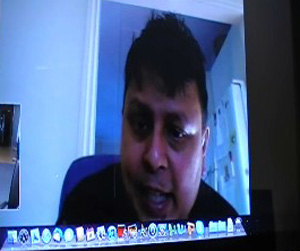The primary reason behind Asia Capital's recent exit from its former insurance subsidiary, Asian Alliance Insurance, which was sold to Ashok Pathiraga's Softlogic Group for Rs. 3.3 billion, was because industry regulators brought in a ruling that only 5% of an insurance fund could be invested, according to the Asia Capital Chairman Manohan Nanayakkara. Further elaborating, he noted that this move by the country's regulators restricted his ability to use the investment fund and thus made insurance unviable for the company, and also opined that buying over control must be one of the fundamentals of investing.
He also suggested that the recent sell-off of a 40% stake in tea broking company Asia Siyaka was due to the company's investment having matured, and suggested that it was his preference to return the money to the investors to be used in other ventures. He further revealed that,10 years ago, Asia Capital had invested just Rs.10 million in this stake and the same stake was recently sold at Rs. 185 million
Mr. Nanayakkara also predicted that hire purchase subsidary Asia Asset Finance would continue to grow since their loan books showed "impressive" growth and their collection rates were "terrific," and revealed that they were considering taking that company public in the next month or two and they were, right now, just finalising the paperwork. He also added that this would, in all likelihood, become Asia Capital's principal subsidiary.
 |
| Chairman Manohan
Nanayakkara, speaking
via Skype |
At the same time, he signalled that his leisure subsidary, Asia Leisure, planned to add two new beach properties, one in Wadduwa and the other in Balapitiya, over the next seven to eight months, which will add about 50 more rooms to the company's existing portfolio of hotels, which presently encompassed boutique hotel properties in Nuwara Eliya, Colombo, Balapitiya and Galle.
He also revealed a US$ 25,000 investment in a small, local independant film last year had earned his production company many worldwide artistic accolades, he signalled that his company would continue to make a few more low cost, low budget films backing youthful directors with new ideas trying to deal with contemporary realities. He also noted that an ongoing project in this area was a film, titled "A common man," with famed actor Ben Kingsley, which he said had a great script as well as being topical, it being about terrorism. Also, it was written and directed by veteran local film personality Chandran Rutnam, with whom his company had virtually an exclusive contract.
Additionally, he noted that there was also a Tamil-dubbed version of "Road to Elephant Pass," now re-named "Yal," which had already been privately screened. The release of this film was planned for Sri Lanka and South India, with a further intention that it also be internationally released as well.
Mr. Nanayakkara also brought up his digitally delivered movie content venture which he said would allow the local industry to get away from the costliness, as well as other restrictions, inherent in using celluloid-based film. A scenario which he said, depending on the size of the release, allows 40% to 50% to be knocked off from the cost of the film. Plans to roll out this distribution across 152 local cinemas had been previously reported in the Business Times.
Further, he also noted that Sid Sheinberg and Paul Mason, two well known Hollywood producers, as well as Gemini Studios, one of the largest studios in India, based in Tamil Nadu, were already involved with Asia Capital's digital efforts, and added that the local cinema industry was one area in which the formal economy had never invested in, and that his company was approaching it as a serious business.
However, he also added that this venture was not just being approached as making movies, but, instead, as technology adaption. Elaborating, he indicated that the plan was to provide digital projectors to movie theatres and establish a digital distribution system through which Asia Digital Entertainment could feed Hollywood, Tamil, Hindi and Sinhala films into the local industry which the company would also co-produce. He further remarked that this would be a fairly large effort for the company and would take a lot of their time over the next year-and-a-half. Previous media reports have also pointed to an US$ 2.5 million investment in Asia Digital Entertainment so far.
Commenting on the aggressive growth achieved in the recent past by Asia Capital, Mr. Nanayakkara noted that the reason he put together a group of investors in 2009 to buy Asia Securities, prevously a long standing local stock broker was because, historically, during any period of peace, the local stock market had boomed. He also added that, since the end of the war, Sri Lanka has also experienced a fairly long period of low interest rates and that, while the rates were higher now, he was still happy with where they are now as the whole credit industry is booming.
Mr. Nanayakkara also suggested that it was time to change the character of his company from being a financial conglomerate to being a conglomerate. And also revealed that Asia Capital planned to stay a venture company, and still continue look for underperformers in the local stock market to acquire. Additionally, he added that he would take Asia Leisure and Asia Digital Entertainment public when both had reached the appropriate size. |


